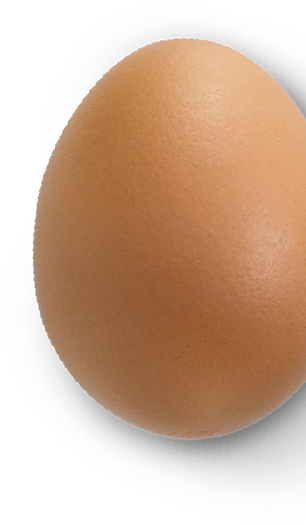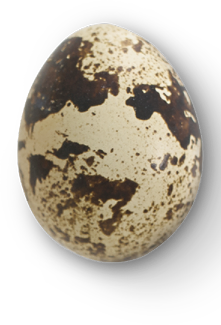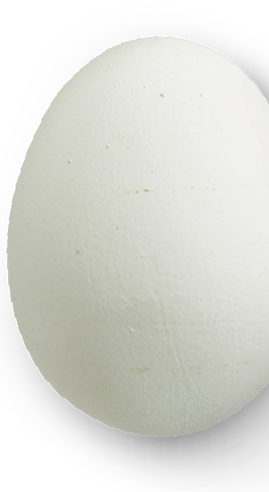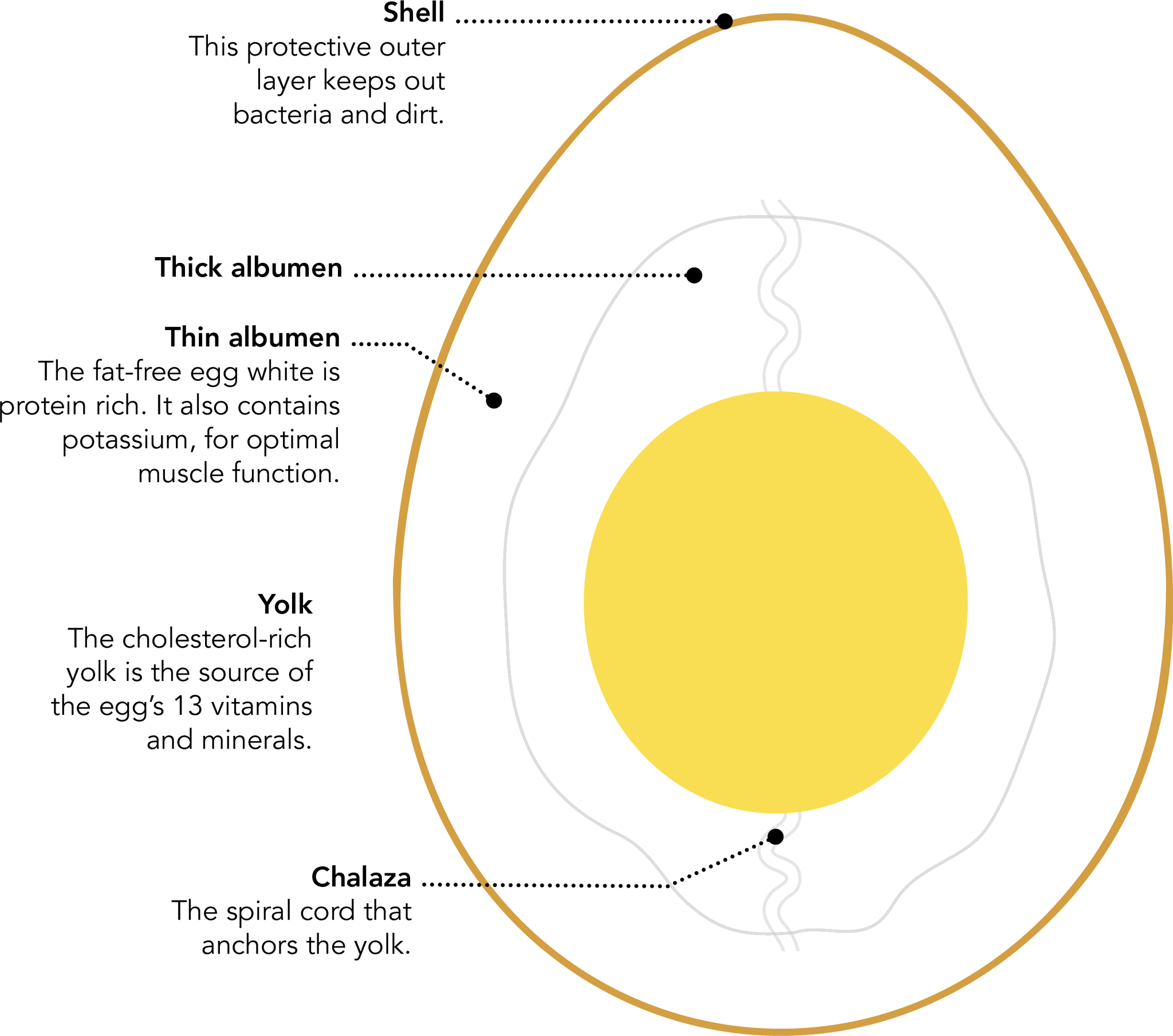-WONDERFOOD-
EGGS
These powerhouses are packed with nutrients linked to good health and the prevention of many age-related diseases. Their positive effects on weight loss, memory, and eye and bone health mean that eggs are a great protein food to put on your menu.
Whether you enjoy a quail’s egg in a salad or you choose omega-3-enriched eggs, there are small but noteworthy nutritional differences between different types of egg.
Hen eggs
- provide good-quality protein, important for healthy muscles
- contain a range of B vitamins and choline, essential for brain function
- vary depending on the type, for example there are omega-3-enriched and organic eggs. An organic egg yolk may contain more protein and potassium than a regular egg yolk.
Quail eggs
- are rich in iron – eat just three quail’s eggs to get the same amount of iron as from one hen’s egg.
Duck eggs
- contain five times more vitamin A than regular hen’s eggs (which is important for eye health), but they contain more fat.
About six eggs a week seems the optimum amount for good health.
Buy fresh eggs, and check the shells are intact.
Eggs are best kept at a constant temperature of 20°C (68°F) or below. If in doubt, keep them in the fridge.
If you are in good health, cook hen’s eggs according to your preference; other eggs, though, should be cooked until the white and yolk are solid.
Great for eyes
Eggs contain vitamin A, which is vital for healthy vision. In addition, they contain lutein and zeaxanthin, antioxidants known as carotenoids, which are concentrated in the macula and are critical for healthy eyes. A good intake of these nutrients is linked to a lower risk of age-related macular degeneration and cataracts, both of which can lead to blindness.
Add eggs to your salad – the fat in eggs helps the body absorb eye-friendly antioxidants.
Heart friendly
Eggs may have a high cholesterol content, but current research shows that cholesterol in food generally has little impact on blood cholesterol levels or heart disease risk (except for people with a genetic condition called familial hypercholesterolaemia). Instead, it’s saturated and trans fats that raise blood cholesterol (see here); yet only 28 per cent of the fat in an egg is saturated fat.
Strong muscles
Protein influences muscle mass, strength, and function, all of which can decline with age. Eggs are a complete protein (see below), containing all the essential amino acids for good muscle health and repair.
Mental wellbeing
Eggs contain many B vitamins, including B12, folate, pantothenic acid, and biotin, all of which are important for mental wellbeing. Eggs are also rich in choline, a nutrient crucial to the production of the neurotransmitter acetylcholine in the brain, which aids brain function and memory.
Vegetarian nutrient boost
As well as being a great source of protein and providing vitamins A and D, a range of B vitamins, phosphorus, selenium, and iodine, eggs also contain useful amounts of iron and zinc, which is especially important for those following vegetarian diets.
Fracture protector
Eggs are one of the few foods that are naturally rich in vitamin D, which is important as it helps the body to absorb calcium. It is therefore vital for keeping bones strong and healthy and protecting against osteoporosis and fractures.
Calorie cutter
Research shows eggs keep us fuller for longer so we take in fewer calories after eating them, which in turn helps with weight loss. In one study, normal-weight men who ate two poached eggs on toast for breakfast consumed 123 fewer calories at lunch and 315 fewer calories at dinner than those who ate cornflakes and toast for breakfast.
 65%
65%
One study found that those who ate an egg-based breakfast lost 65 per cent more weight than those who had a bagel breakfast.








